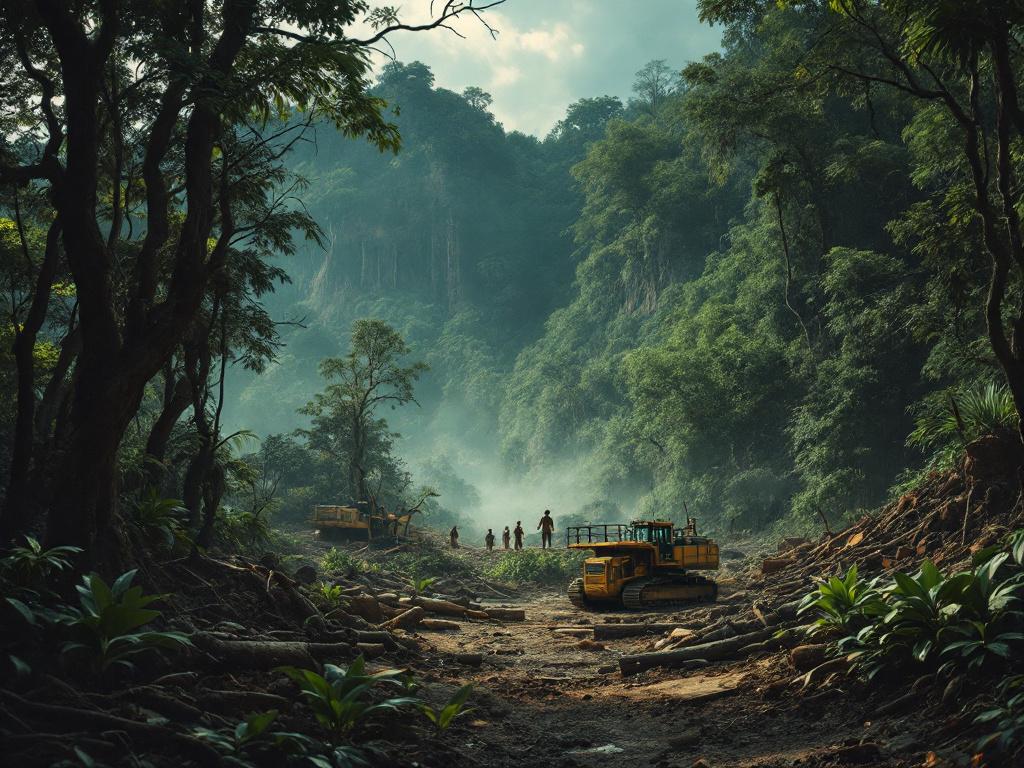Articles in this Cluster
28-10-2025
A new report by Survival International identifies 196 uncontacted Indigenous groups in 10 countries, primarily in the Amazon rainforest, and warns that half of these groups could be wiped out within 10 years due to threats from logging, mining, and agribusiness. The report highlights the importance of protecting these groups and their territories, not only for their human rights but also for the global climate. Experts emphasize the need for stronger laws, a shift in how the world views uncontacted peoples, and the importance of recognizing and enforcing Indigenous territories.
Entities: Survival International, Fiona Watson, Amazon rainforest, Indigenous peoples, Brazil • Tone: urgent • Sentiment: negative • Intent: inform
28-10-2025
The United Nations has reported that global greenhouse gas emissions are expected to fall significantly for the first time, driven by new pledges from countries including China, India, and the EU. The UN's climate chief, Simon Stiell, stated that 'humanity is now clearly bending the emissions curve downwards for the first time, although still not nearly fast enough.' The fall in emissions is attributed to the rapid rollout of solar and wind power, which provided more electricity than coal for the first time this year. However, the UN warns that the current rate of reduction is not sufficient to meet the Paris Agreement's goal of limiting global warming to 1.5C above pre-industrial levels, which would require emissions to fall by 60% by 2035. The upcoming COP30 climate summit in Brazil is expected to send a clear signal that countries are committed to climate cooperation.
Entities: United Nations, Simon Stiell, China, India, EU • Tone: neutral • Sentiment: positive • Intent: inform
28-10-2025
The article discusses the world's indigenous uncontacted peoples, who are under threat from modern civilization. There are approximately 196 uncontacted indigenous groups in 10 countries, with 95% living in the Amazon rainforest. These groups live off the land through hunting, fishing, and planting, and have chosen to remain isolated. However, their way of life is under threat from logging, mining, and agribusiness, which can lead to the destruction of their land, starvation, and trauma. The article highlights the importance of recognizing indigenous territories and implementing a global no-contact policy to protect these groups. It also emphasizes the need for corporations and consumers to take responsibility for their actions and ensure that commodities are not sourced from indigenous lands.
Entities: indigenous uncontacted peoples, Amazon rainforest, Survival International, Fiona Watson, South America • Tone: urgent • Sentiment: negative • Intent: inform
28-10-2025
Bill Gates has released a memo stating that climate change will not lead to humanity's demise, marking a shift in his stance on the issue. Gates, who has spent billions on climate change initiatives, is now calling for a more nuanced approach to addressing the problem, focusing on improving lives in the developing world rather than solely on reducing greenhouse gas emissions. The memo comes ahead of the COP30 climate summit and has sparked debate among experts.
Entities: Bill Gates, Microsoft, Belém, Brazil, United Nations • Tone: neutral • Sentiment: positive • Intent: inform
28-10-2025
The UN Secretary-General, António Guterres, has warned that humanity has missed the 1.5C climate target and must change course immediately to avoid devastating consequences. In an exclusive interview with the Guardian and Sumaúma, Guterres acknowledged that the target will be overshot, but emphasized the need for drastic emissions cuts to minimize the damage. He called for greater representation of Indigenous communities at climate summits and urged governments to rebalance their priorities away from corporate interests. Guterres also highlighted the importance of transitioning away from fossil fuels and investing in renewable energy.
Entities: António Guterres, United Nations, Cop30, Paris climate agreement, Brazil • Tone: urgent • Sentiment: negative • Intent: inform
